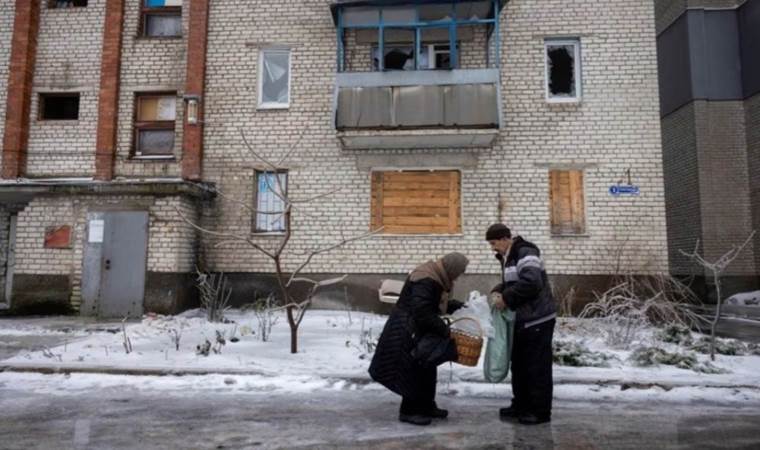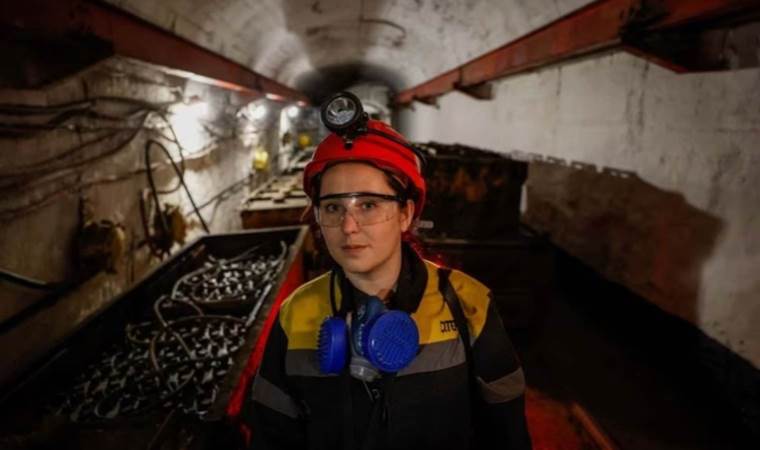Ukrainian town faces tough winter, a year after driving out Russian forces
The few remaining residents in the devastated eastern Ukrainian town of Lyman are preparing for a difficult winter as snow falls and the temperature drops.

More than a year after Ukrainian forces drove out Russian troops who occupied Lyman for five months, it's a struggle just to stay warm.
"There is no hope in the electricity. There is no gas, the electricity comes and goes. It doesn't depend on people, it depends on the weather," said 63-year-old Hennadiy Batsak, sitting in front of a simple wood-burning stove in his flat.
The stove looks jarringly out of place in Batsak's late Soviet-era apartment but is the only way for most people in the town to heat their homes during the long, cold winter, when temperatures drop far below zero.
Mayor Oleksandr Zhuravlyov says Lyman cannot be rebuilt while fighting continues nearby, and residents spend much of the time wrapped in coats and feeding their stoves.
Lyman is only about 15 km (nine miles) from the front line and lies north of Ukraine’s coal and steel heartland, where fighting has been under way for nearly a decade since proxy forces aided by Moscow rose up in 2014.
Nearly 20,000 people lived in the town before Russia's full-scale invasion of Ukraine in February last year, Mayor Oleksandr Zhuravlyov said.
The town was occupied by Russian forces in May 2022, but they were forced out the following October in a lightning Ukrainian counteroffensive that broke Russia's defences to Lyman's north.
Fewer than 5,400 residents remain but nearly 90% of the town's infrastructure has been damaged or destroyed, Zhuravlyov said.
REFUSAL TO LEAVE
Those who have stayed or returned are mostly older, and say they have no desire to leave the place where some of them have lived all their lives. Some also cite expensive rents in other parts of Ukraine as reasons for returning.
"I was born here. This is my homeland. Here," 78-year-old Volodymyr Tkachenko said, pointing at the ground.
"Over there, other people live," he said, gesturing into the distance with a piece of bread. "That’s their homeland. But I am here since 1945, and I’m still here today."
He returned home after spending last winter in the relative safety of Dnipro, a city in southeastern Ukraine that is much further from the front line.
The only source of heat in his home is the simple metal stove, into which he slowly pushes logs, collected by humanitarian volunteers and left in piles along Lyman's main roads.
Military vehicles often roar through the snow-covered streets, puncturing the town's stillness.
Shelling can be heard in the distance. While Lyman is calmer than areas around it, danger is never far away. In July, a barrage of Russian rockets slammed into the town centre, killing nine people.
"Whether to return or not to Lyman is the responsibility of each citizen," Zhuravlyov said.
"Our municipality is in an active combat zone, and we are not currently able to repair homes or ensure full safety."




